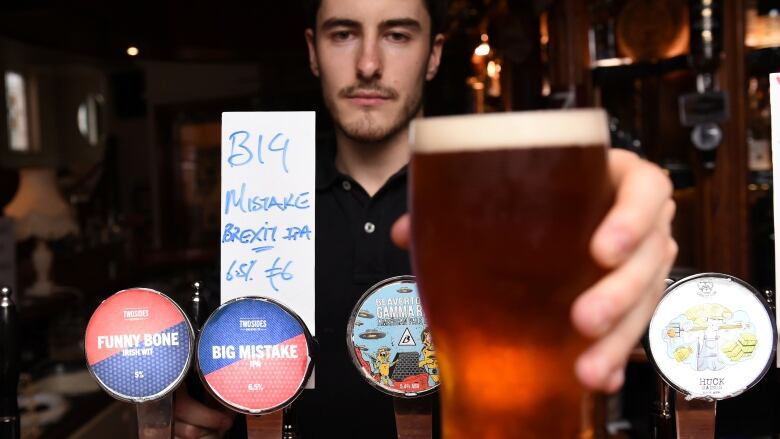Global markets oversold unless Brexit is a sign of something worse: Don Pittis
There is no reason the U.K. can't rebound, but the world must stop ignoring calls for change

There are signs that world markets are coming to their senses, realizing that the kind of crisis that would justify a financial bloodbath has not yet happened.
However, markets signal the future. That means the wave of selling since the U.K. voted last week to Brexit shows some traders feared something much worse was on the way.
Now the world must pull together to make sure that something worse does not arrive, either in Britain or elsewhere.
Britain's bad patch
There are many voices advising calm, saying that after the current period of turmoil the future is rosy.
There is no reason why Britain could not eventually return to strength, trading with Europe and the world as an independent economy as Norway and Switzerland do today.
However, there is much to be resolved before that can happen and there is still a chance things will get worse before they get better.
Dangerous global trend
For the sake of the world economy, the greater disaster would be if what has happened in Britain is not just a unique event, but a worldwide anti-foreign and anti-globalization trend of the type warned against by French economist Thomas Piketty in his 2013 book Capital in the 21st Century.

"We voted Leave, it's time for you to leave," Sayeeda Warsi quoted Brexit supporters saying to people who looked or sounded different from their idea of what a true British person should. Warsi is a British peer and former head of the Conservative Party who switched sides from Leave to Remain once she saw the anti-European rhetoric spill into another kind of nastiness.
A rise in racist or sectarian violence is by itself enough to justify market worries, because healthy economies do not operate well in periods of social chaos.
As Churchill said ...
In the Brexit debate both sides invoked the memory of Britain's heroic Second World War leader, Winston Churchill who famously said, "It has been said that democracy is the worst form of government, except for all the others."
But in political terms this is not Churchill's Britain, where the educated elite believed in the duty of service, an enlightened civil service held a firm grip on power and the working people knew their place.

When Piketty described this very problem and its solution in the hope of saving capitalism he was labelled a Marxist by some of the same groups that are helping now to tear Europe apart.
"At the heart of every major political upheaval lies a fiscal revolution," Piketty wrote.
One of his great concerns was that as wealth, income and education became more unequal there would be an uprising against greater global integration.

Reports on the breakdown of the Brexit vote show people in favour of staying in Europe were the young, educated and cosmopolitan who have benefited from globalization. The Leave side was supported by Piketty's disenfranchised, expressing the rage that foreigners and Europeans are getting all the benefits of free trade, imagining they can go back to a mythical time when everyone had a job.
"All signs are that the Scandinavian countries, where wage inequality is more moderate than elsewhere, owe this result in large part to the fact that their educational system is relatively egalitarian and inclusive," Piketty wrote.
It may be that the divisive politics that has begun in Britain has gone too far to be stopped. But there is still hope that the young and successful who have benefited from globalization will take this vote as a warning and as a rallying cry, stepping into the void in British politics, responding to the call for champions.
Follow Don on Twitter @don_pittis
More analysis by Don Pittis

